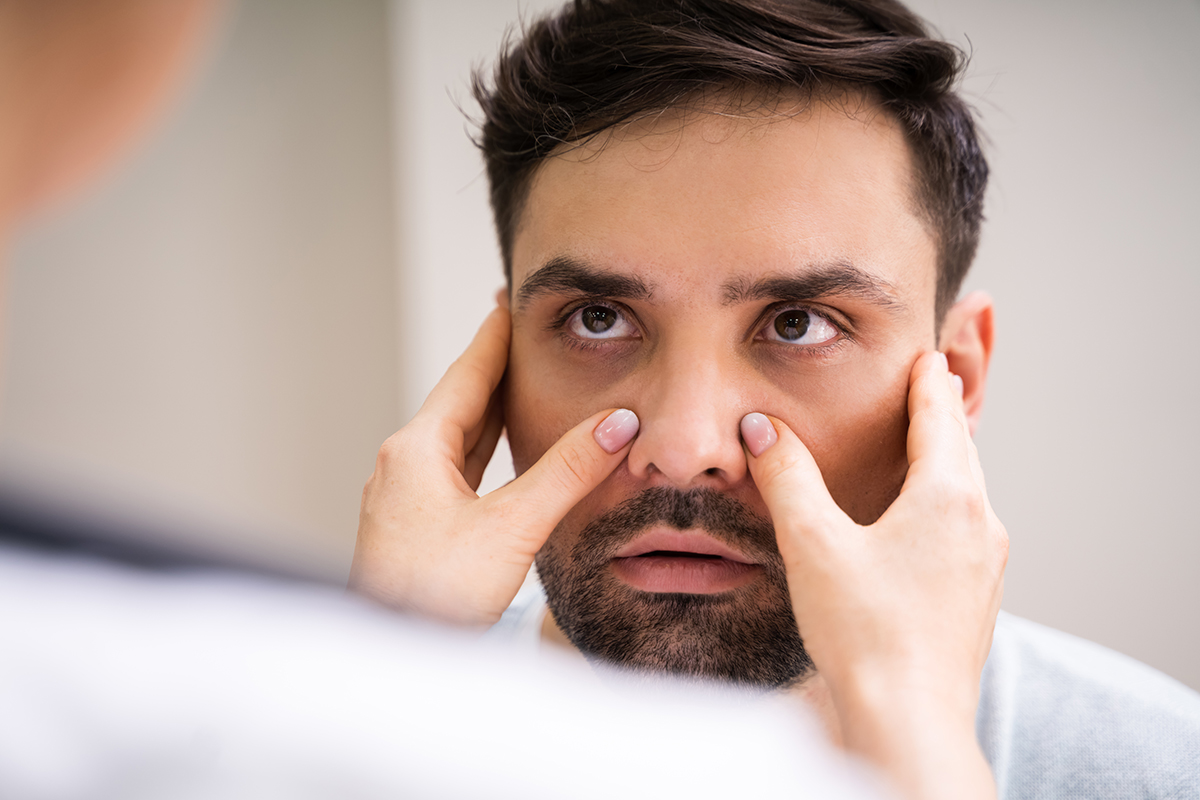
Some people dread winter, not because of the chilly weather and the minimal daylight, but because everyone seems to be sick.
The common cold is one such culprit. Research suggests that the average healthy adult catches two or three colds a year, and this number is even higher for children. If you start to feel a little under the weather in the winter months—especially if someone’s been hacking up a lung at work—you might reasonably assume you’ve picked up the bug.
While that line of thought is certainly rational, a cold might not be the right explanation. The symptoms of allergies frequently mirror those of the common cold. To distinguish whether you have a head cold or allergies, you’ll need to consider your symptoms along with the causes of each health problem.
Similarities Between Colds and Allergies
Many people mistake allergies for colds because they have similar symptoms. A runny or stuffy nose, sneezing, coughing, fatigue and even a sore throat could indicate either a head cold or allergies. Additionally, both colds and allergies trigger a similar immune system response in the body.
While colds or allergies can manifest at any point in the year, they both frequently strike during the winter months. Thus, the time of year may not be a reliable indicator of which problem you are experiencing.
The Common Cold: Causes and Symptoms
Despite their many similarities, colds and allergies have entirely separate causes. The common cold can be caused by any one of many contagious viruses. The illness spreads when a person comes in close contact with an infected individual or touches surfaces contaminated with the cold virus. This can happen when a sick person shakes your hand or coughs on you, or when you touch a doorknob that’s been touched by someone who has a cold.
The immune system responds to the cold virus by sending white blood cells to fight it off, and then develops antibodies to protect you from getting the same virus in the future. This immune system response is what causes those uncomfortable symptoms.
Though a cough and sore throat can be caused by either a head cold or allergies, these symptoms happen more often when you have a cold. Additionally, colds can cause aches and pains and occasionally a fever. Allergies do not elicit this response, so if you’re down with a fever, you have a cold.
The last thing to consider when distinguishing between a cold and allergies is the onset and duration of your symptoms. Cold symptoms appear a few days after exposure to the virus, and they clear up within three to 14 days. If your symptoms last longer, allergies may be the culprit.
Allergies: Causes and Symptoms
Unlike the common cold, allergies are caused by allergens, not viruses. Allergens can be anything from pollen and mold to dust and pet dander, and they are not necessarily harmful in and of themselves. However, some people’s immune systems interpret allergens as unwanted, harmful substances and create an immune reaction to attack the allergens. This reaction produces histamine, the chemical that causes inflammation, runny nose, and watery eyes.
Because of the difference in their causes, colds and allergies manifest slightly differently. People with allergies are much more likely to have itchy eyes, rashes, and thin, clear mucus. Thick yellow or green mucus means you either have a cold or your issue has developed into a full-blown sinus infection.
Unfortunately, allergies occur soon after exposure to an allergen and will continue as long as you remain exposed. This means that allergy symptoms, especially seasonal allergy symptoms, tend to last a few weeks or longer.
Treatments for Colds and Allergies
Whether you have a head cold or allergies, you likely want relief. Fortunately, there are simple ways to ease your symptoms in either case.
For colds:
- Cough syrup
- Decongestant spray
- Over-the-counter pain relievers
- Cough and cold medicine
- Resting
- Drinking plenty of fluids and reducing caffeine intake
- Gargling with salt water
For allergies:
-
- Antihistamines
- Decongestants (only short-term use)
- Allergy shots
- SLIT (Sublingual Immunotherapy)
- Saline nasal spray
- Using a humidifier
Keep in mind that you cannot “cure” a cold, as it is a viral infection. These solutions merely help manage the discomfort you may feel.
Get Allergy Relief with Allergy & ENT Associates in Houston, TX
Regardless of the severity of your allergies, the specialists at Allergy & ENT Associates can help! We have been providing patients in the greater Houston area like Baytown and Katy with allergy, asthma and sinus care for the past 60 years. All our specialists are certified by the American Board of Allergy and Immunology and provide compassionate care while diagnosing and treating your allergies. To schedule your appointment, call us at (713) MY-SINUS today.



